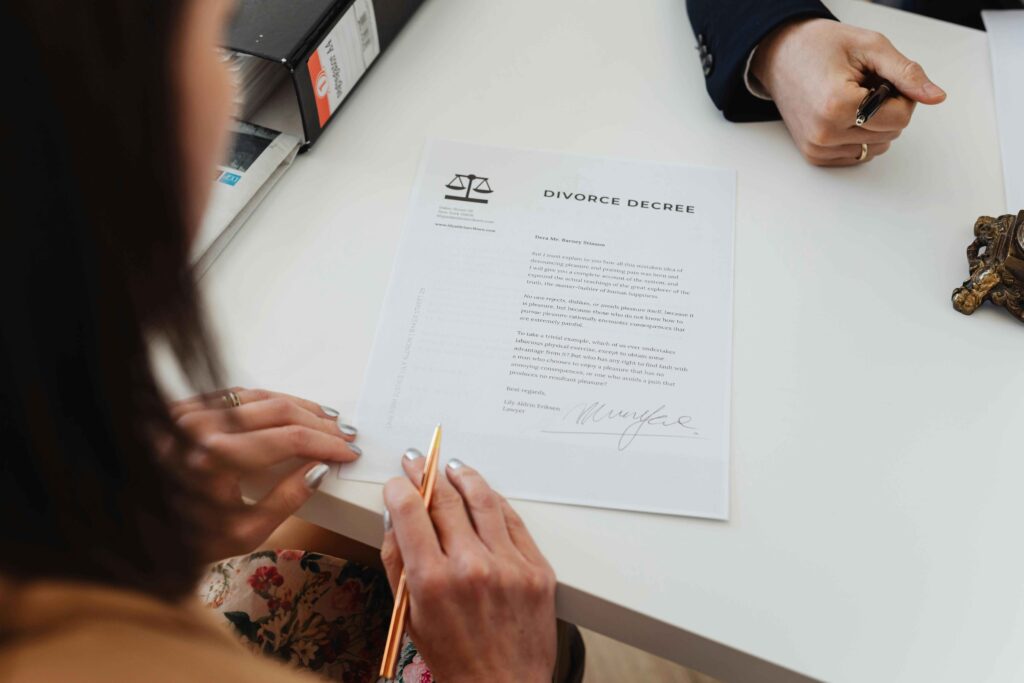Divorce can be one of the most challenging times in an individual’s life, both emotionally and legally. Choosing the right divorce attorney is crucial for protecting your interests, securing a fair outcome, and navigating the complexities of family law. In this comprehensive guide, we explore what makes a great divorce attorney, how they can assist you, and key considerations during the divorce process.
Why Hiring the Right Divorce Attorney is Essential
Divorce is not just the dissolution of a marriage; it involves decisions about asset division, child custody, alimony, and more. A skilled divorce attorney ensures that your rights are safeguarded while providing objective advice in emotionally charged situations. The right attorney helps you avoid common pitfalls and works toward an equitable resolution, whether through negotiation, mediation, or litigation.
Qualities of a Competent Divorce Attorney

When selecting a divorce attorney, consider the following qualities:
1. Extensive Experience in Family Law
A specialized divorce attorney with years of practice in family law understands the nuances of state-specific divorce statutes. Their expertise ensures they can anticipate challenges and build a solid case for you.
2. Strong Negotiation Skills
Most divorces are resolved outside of court through settlements. An attorney with strong negotiation skills can secure favorable terms for property division, spousal support, and custody agreements.
3. Compassion and Communication
Divorce is deeply personal, so working with an attorney who listens to your concerns and communicates effectively is essential for a smooth process. Compassionate attorneys build trust while ensuring you are informed about your case’s progress.
Key Steps in the Divorce Process
1. Filing for Divorce
2. Serving Divorce Papers
Once filed, the petition must be served to the other party, ensuring they are formally notified. This can be done through personal delivery, certified mail, or a professional process server.
3. Responding to the Petition
The receiving party has a limited time to respond. Their response may include counterclaims, requiring both parties to prepare for negotiation or trial.
4. Discovery Phase
5. Negotiation and Mediation
Many couples opt for mediation to reach amicable agreements on contentious issues like child custody and spousal support. Skilled attorneys guide their clients through this process to avoid protracted court battles.
6. Trial (If Necessary)
If mediation fails, the case goes to trial. Here, a judge makes binding decisions on all unresolved matters. Trial preparation requires meticulous documentation and expert legal representation.
Critical Areas Addressed by Divorce Attorneys

1. Child Custody and Visitation
The most emotionally charged part of a divorce is frequently child custody. Attorneys advocate for arrangements that prioritize the child’s best interests, including physical custody, legal custody, and visitation schedules.
2. Division of Assets and Debts
State laws determine how marital assets and debts are divided. Attorneys ensure accurate valuations of property, investments, and other financial assets to secure a fair settlement.
3. Spousal Support (Alimony)
4. Domestic Violence and Protective Orders
If domestic violence is a factor, attorneys assist clients in obtaining protective orders and ensuring their safety during the divorce process.
Top Tips for Choosing the Right Divorce Attorney

1. Research and Recommendations
Start by seeking recommendations from trusted sources or online reviews.Seek out lawyers with a solid track record and a focus on family law.
2. Schedule Consultations
Many attorneys offer free or low-cost initial consultations. Take advantage of this chance to evaluate their level of experience, communication style, and strategy for handling your case.
3. Discuss Fees and Expectations
Transparency about fees is essential. Ensure you understand the billing structure and what services are included to avoid unexpected costs.
4. Trust Your Instincts
In the end, pick a lawyer with whom you are at ease working. Divorce is a collaborative process, and trust is key to a successful attorney-client relationship.
The Benefits of Mediation Over Litigation

Mediation offers a less adversarial approach to divorce. Here are its advantages:
- Cost-Effective: Mediation typically costs less than court trials.
- Faster Resolution: Mediation can expedite the divorce process.
- Amicable Outcomes: Couples maintain greater control over the outcome, fostering cooperative co-parenting relationships.
How Divorce Attorneys Support You Emotionally
Beyond legal expertise, divorce attorneys provide emotional support by:
- Keeping you focused on long-term goals.
- Helping you manage stress by handling the legal intricacies.
- Offering practical advice to make sound decisions during turbulent times.
Final Thoughts
Divorce is a challenging journey, but having the right legal representation can make a significant difference. Experienced divorce attorneys provide the guidance, advocacy, and emotional support you need to navigate this critical life transition successfully.
What does a divorce attorney do?
A divorce attorney specializes in handling legal matters related to divorce, including child custody, property division, spousal support, and more. They ensure your rights are protected and guide you through the process.
How much does a divorce attorney cost?
The cost varies depending on the complexity of your case, the attorney’s experience, and location. Some attorneys charge hourly rates, while others offer flat fees for uncontested divorces.
Can I change my divorce attorney during the process?
Yes, you have the right to change your attorney at any point, though it may cause delays. Ensure the new attorney has time to familiarize themselves with your case.
How does child custody work in a divorce?
Custody decisions are based on the child’s best interests, considering factors like the parents’ ability to provide care, stability, and the child’s relationship with each parent.

